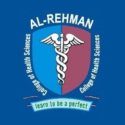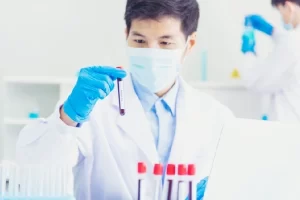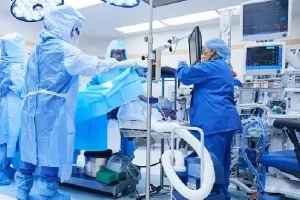
Pharmacy Technician
Introduction
Pharmacy technicians play a vital role in the healthcare system, working alongside pharmacists to ensure the safe and efficient delivery of medications to patients. These skilled professionals possess a unique set of knowledge and skills that enable them to support pharmacists in various aspects of pharmaceutical care. In this blog, we will explore the crucial role of pharmacy technicians and the diverse responsibilities they undertake to ensure optimal patient outcomes.
I. The Role of Pharmacy Technicians in Healthcare
A. Assisting in Medication Dispensing Pharmacy technicians are responsible for dispensing medications accurately and efficiently. They work closely with pharmacists to interpret prescriptions, label medications, and package them for distribution. By maintaining meticulous attention to detail, pharmacy technicians help prevent medication errors and ensure patients receive the correct medications and dosages.
B. Medication Inventory Management Managing the pharmacy’s inventory is another critical task performed by pharmacy technicians. They monitor stock levels, check expiration dates, and ensure that medications are stored appropriately. By maintaining an organized inventory system, pharmacy technicians help prevent medication shortages and waste, ensuring that patients always have access to the medications they need.
C. Prescription Processing and Insurance Claims Pharmacy technicians play a crucial role in processing prescription orders. They gather necessary patient information, input prescription details into the pharmacy’s computer system, and verify insurance coverage. These tasks help streamline the prescription-filling process and ensure accurate billing, facilitating seamless patient care.
II. Skills and Qualifications of Pharmacy Technicians
A. Knowledge of Medications and Dosages Pharmacy technicians must possess a solid understanding of various medications, including their indications, dosages, and potential side effects. This knowledge allows them to assist pharmacists in verifying prescription orders and educating patients about their medications.
B. Attention to Detail and Accuracy Pharmacy technicians must be highly detail-oriented to prevent medication errors. From correctly labeling medications to ensuring accurate prescription processing, their meticulousness contributes to patient safety and the overall quality of pharmaceutical care.
C. Strong Communication and Interpersonal Skills Effective communication are vital in a pharmacy setting. Pharmacy technicians interact with patients, healthcare providers, and other pharmacy staff regularly. Clear and concise communication ensures accurate prescription processing, provides essential medication counseling to patients, and fosters a collaborative work environment.
III. Importance of Pharmacy Technicians in Patient Care
A. Enhanced Workflow Efficiency By supporting pharmacists in various tasks, pharmacy technicians help streamline the workflow within a pharmacy. This enables pharmacists to focus on clinical responsibilities, such as medication therapy management and drug consultations, ultimately improving patient outcomes.
B. Patient Education and Counseling Pharmacy technicians are often the first points of contact for patients picking up their medications. They have the opportunity to provide valuable information regarding medication administration, potential side effects, and adherence strategies. Their patient-centered approach ensures that individuals have a clear understanding of their prescribed medications, leading to improved medication compliance and health outcomes.
C. Ensuring Medication Safety Pharmacy technicians contribute significantly to medication safety initiatives. Through their attention to detail and adherence to established protocols, they help identify potential drug interactions, allergic reactions, or medication errors before dispensing medications to patients. Their collaboration with pharmacists and healthcare providers ensures that medications are prescribed and administered safely.
IV. The Evolving Role of Pharmacy Technicians
A. Expanded Responsibilities Over the years, the role of pharmacy technicians has evolved to meet the changing demands of the healthcare industry. In some states or countries, pharmacy technicians can now administer vaccines, conduct medication reconciliation, and even perform certain clinical tasks under the supervision of a pharmacist. This expanded scope of practice allows pharmacy technicians to have a more direct impact on patient care.
B. Advancements in Technology Technological advancements have also transformed the pharmacy landscape. Pharmacy technicians are increasingly utilizing electronic health records, automated dispensing systems, and barcode scanning technologies to streamline their workflow and enhance patient safety. These technological tools help pharmacy technicians in tasks such as medication verification, inventory management, and prescription processing, reducing the potential for errors and improving overall efficiency.
C. Professional Development and Certification As the role of pharmacy technicians become more critical, professional development and certification have gained prominence. Many pharmacy technicians pursue certification through organizations such as the Pharmacy Technician Certification Board (PTCB) or the National Healthcareer Association (NHA). These certifications validate their knowledge and skills, making them more competitive in the job market and enabling career advancement opportunities.
V. The Future of Pharmacy Technicians
A. Increased Demand and Career Opportunities The demand for pharmacy technicians is expected to grow significantly in the coming years. Factors such as an aging population advances in healthcare technology, and expanded pharmacy services contribute to this growth. As a result, pharmacy technicians can look forward to a wide range of career opportunities in retail pharmacies, hospitals, long-term care facilities, mail-order pharmacies, and pharmaceutical companies.
B. Collaborative Healthcare Teams Pharmacy technicians will continue to be integral members of collaborative healthcare teams. They work closely with pharmacists, nurses, and other healthcare professionals to provide comprehensive patient care. Their contributions to medication management, patient education, and medication safety are highly valued in interdisciplinary healthcare settings.
C. Embracing Innovation As the healthcare industry continues to evolve, pharmacy technicians must adapt to new advancements and innovations. The integration of telepharmacy, telehealth, and artificial intelligence in pharmacy practice presents new opportunities for pharmacy technicians to leverage technology and provide remote support to patients and pharmacists.
Conclusion
Pharmacy technicians are indispensable allies in the healthcare system, playing a crucial role in ensuring the safe and effective delivery of medications to patients. Their responsibilities encompass medication dispensing, inventory management, prescription processing, and patient education. Pharmacy technicians possess a unique skill set that combines in-depth knowledge of medications, attention to detail, and strong communication skills. They contribute to patient care by enhancing workflow efficiency, providing medication counseling, and promoting medication safety.
As the healthcare landscape continues to evolve, pharmacy technicians will embrace expanded responsibilities and utilize technological advancements to enhance their efficiency and impact. With increasing demand and a wide range of career opportunities, pharmacy technicians will continue to be vital members of collaborative healthcare teams, working together to improve patient outcomes and advance pharmaceutical care.
In conclusion, pharmacy technicians are the unsung heroes of the pharmacy profession, making a significant difference in patient care and ensuring the safe and effective use of medications. Their dedication, expertise, and commitment to excellence make them invaluable assets in the healthcare system.


